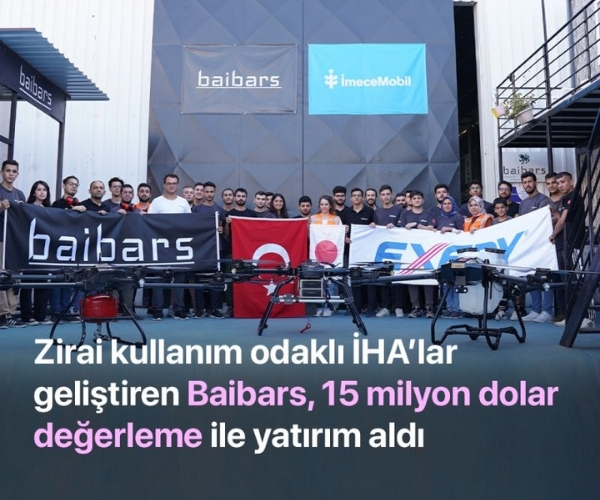
baibars, which develops UAVs focused on agricultural use, received an investment from the Japanese company Exedy.
Baibars, a company developing UAVs focused on agricultural use, receives investment from Japanese company Exedy.
Baibars, a local startup developing agricultural spraying drones and unmanned aerial vehicles (UAVs), has received an investment from the Japanese company Exedy, one of the world's largest manufacturers of mechanical equipment components. The financial details of the investment, which was made at a valuation of 15 million USD, were not disclosed due to Exedy's listing on the Tokyo Stock Exchange.
Founded in 2015 in Çukurova with the aim of meeting the technological needs of farmers in our country through national resources, Baibars focuses on the development, production, system integration, and lifecycle support processes of autonomous aviation systems in agriculture. The local startup, aiming to become a pioneer in its sector in Turkey, controls its agricultural drones and tactical UAVs, developed entirely with national R&D, through Baibars Yaver, which is also owned by the startup.
Baibars Yaver helps ensure efficient operation under challenging conditions with high precision and ease of use. The startup's assistant, named Baibars Asistan, helps determine the operation area, select the appropriate spraying option for the crop, and set the flight altitude and route, thanks to its continuously updated satellite-based database. The startup's drones, tactical UAVs, control systems, and software provide a 360-degree solution for agricultural use.
Although some of the startup's technologies bear the name "tactical UAV," they are not armed systems. The term "tactical" is more related to the functional use of these UAVs; their ability to carry heavy loads and perform resupply missions between stations allows Baibars' UAVs to be used in various fields. According to the startup's statement, no military systems will be produced as per the agreement made with Exedy.
After the investment, sharing Baibars' future plans with Swipeline, Baibars co-founder and general manager Çağlayan Erguvan said, "As a result of the agreement, we aim to increase our local production rate, ensure sustainable value-added production in our country, contribute to the economy and employment, and become an international brand."
Source: Swipeline
